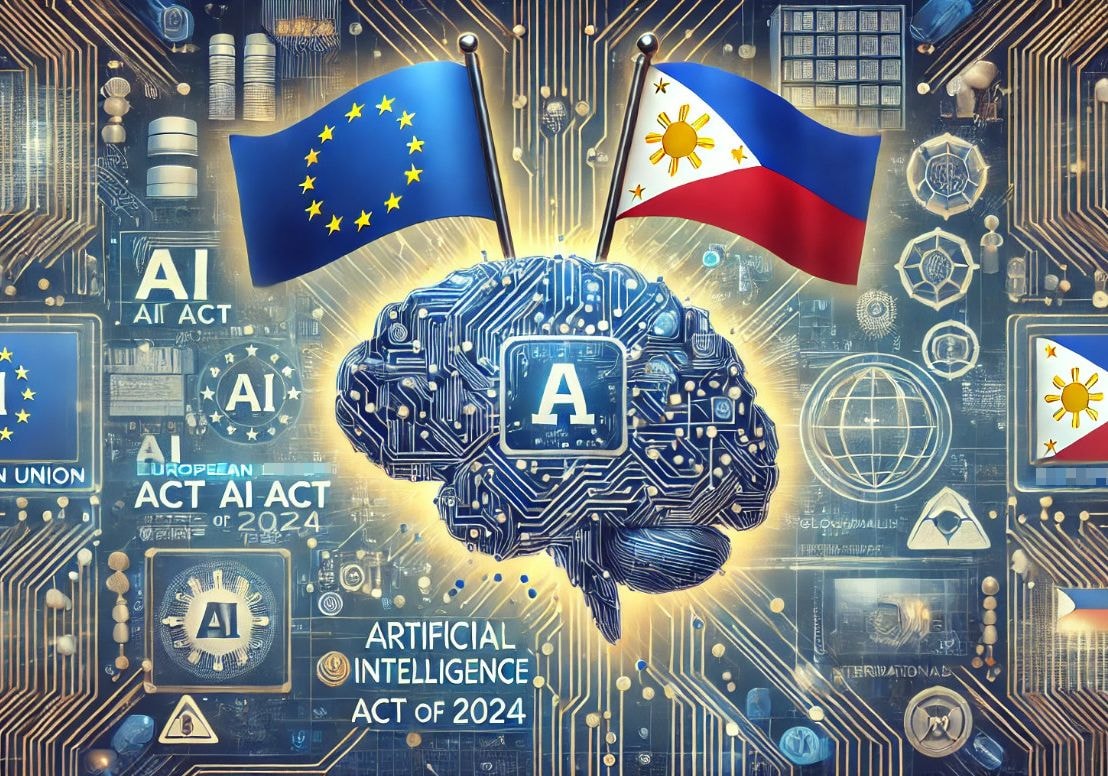
Artificial Intelligence (AI) is rapidly transforming our world, offering incredible opportunities while also posing significant risks. To harness the benefits of AI while safeguarding human rights and public interests, the European Union (EU) has introduced the Artificial Intelligence Act of 2024. This landmark regulation sets out rules to ensure that AI is developed and used in a way that is safe, ethical, and aligned with EU values.
What is the AI Act?
The AI Act is a regulation passed by the European Parliament and the Council of the European Union that lays down harmonized rules for the development, deployment, and use of AI within the EU. The primary goal of the Act is to promote the development of “human-centric and trustworthy AI” while ensuring that AI systems do not harm health, safety, or fundamental rights, such as privacy and non-discrimination.
Key Features of the AI Act
- Risk-Based Approach: The AI Act categorizes AI systems into different risk levels: unacceptable risk, high risk, and minimal risk. This approach tailors the rules and obligations depending on the level of risk posed by the AI system. For instance:Unacceptable Risk: AI practices that manipulate human behavior, exploit vulnerabilities, or involve social scoring by public authorities are banned outright.
High Risk: AI systems used in critical areas like healthcare, transportation, and law enforcement must comply with strict requirements, including robust data governance, transparency, and human oversight.
Minimal Risk: For low-risk AI systems, the Act imposes fewer obligations, but providers are encouraged to follow voluntary codes of conduct to ensure ethical practices. - High-Risk AI Systems: AI systems classified as high-risk must adhere to rigorous standards. These include:Implementing a risk management system to continuously assess and mitigate risks.
Maintaining transparency by providing clear information to users about how the AI system operates and its potential impacts.
Ensuring human oversight to avoid outcomes that could harm individuals or society. - Transparency Obligations: The Act mandates transparency for AI systems, especially those interacting directly with humans. Users should be informed when they are interacting with an AI system, and the AI’s capabilities and limitations should be clearly communicated.
- Support for Innovation: To encourage innovation while maintaining safety, the AI Act introduces AI regulatory sandboxes. These are controlled environments where innovators can test AI systems under regulatory supervision. The Act also provides special provisions for small and medium-sized enterprises (SMEs) and startups, acknowledging their crucial role in driving AI advancements.
- Governance and Enforcement: The AI Act establishes a governance framework that includes the European Artificial Intelligence Board, which will oversee the implementation and enforcement of the regulation. National competent authorities in each EU member state will also play a key role in monitoring and enforcing compliance.
- Penalties: Non-compliance with the AI Act can lead to severe penalties, including significant fines. These penalties are designed to deter misuse and ensure that AI systems are developed and used responsibly.
Why Does the AI Act Matter?
The AI Act is a pioneering effort to regulate AI on a comprehensive scale, balancing innovation with the need to protect fundamental rights. As AI systems become increasingly integrated into various aspects of life—from healthcare to finance and law enforcement—the Act seeks to ensure that these technologies are used to benefit society, rather than to harm it.
By setting clear rules and expectations, the AI Act aims to foster trust in AI technologies, ensuring that they are safe, transparent, and aligned with ethical standards. For businesses and developers, the Act provides a clear framework to guide the responsible development of AI, helping them innovate while staying compliant with EU regulations.
What This Means for the Philippines
As AI continues to grow globally, countries outside the EU, including the Philippines, are closely watching how regulations like the EU’s AI Act unfold. While the AI Act itself is not directly applicable in the Philippines, its principles and guidelines can significantly influence AI policies and practices in other countries, including ours.
Status of AI in the Philippines
As AI continues to grow globally, countries outside the EU, including the Philippines, are closely watching how regulations like the EU’s AI Act unfold. While the AI Act itself is not directly applicable in the Philippines, its principles and guidelines can significantly influence AI policies and practices in other countries, including ours.
- National AI Strategy: The Department of Trade and Industry (DTI) has introduced the National AI Roadmap, aiming to position the Philippines as an AI center for excellence in Southeast Asia. This roadmap outlines strategies to promote AI adoption across various sectors, enhance the country’s AI capabilities, and ensure the ethical use of AI technologies.
- AI in Business and Government: AI applications are beginning to emerge in the Philippine business sector, particularly in industries like finance, customer service, and healthcare. The government is also exploring AI’s potential in improving public services, such as traffic management, disaster response, and agriculture.
- Challenges and Ethical Considerations: Despite these advancements, the Philippines faces challenges, including the need for skilled AI professionals, infrastructure development, and the establishment of ethical and legal frameworks. The EU’s AI Act can serve as a reference point for the Philippines in shaping its own AI regulations, particularly in areas like risk management, transparency, and human rights protection.
- As of writing (August 20, 2024), the National Privacy Commission or NPC, has no guidelines yet that relate to AI as is.
Potential Impact of the AI Act on Philippine Policies
While the Philippines is crafting its own AI policies, the EU’s AI Act can offer valuable lessons. The Act’s focus on a risk-based approach, transparency, and human-centric AI development could influence the drafting of similar regulations in the Philippines. For instance:
- Adoption of AI Ethics: The Philippines could integrate principles of transparency, fairness, and human oversight into its AI strategies, ensuring that AI systems deployed in the country align with both local and global ethical standards.
- Regulatory Framework: As AI technology becomes more prevalent, the Philippine government might consider developing a regulatory framework similar to the EU’s, tailored to the country’s specific needs and context.
- International Collaboration: The Philippines could explore partnerships with the EU and other countries to learn from their experiences in regulating AI, benefiting from shared knowledge and best practices.
Conclusion
The EU’s Artificial Intelligence Act of 2024 sets a new standard for AI regulation, emphasizing safety, transparency, and ethical considerations. While the Act directly applies within the EU, its influence extends far beyond Europe, including to countries like the Philippines. By understanding and potentially adopting similar principles, the Philippines can ensure that its AI development is both innovative and responsible, paving the way for a future where AI benefits everyone.
For more detailed information, always refer to the official source and regulatory texts.
Sources:
*EU Artificial Intelligence Act 2024:
https://eur-lex.europa.eu/eli/reg/2024/1689/oj

